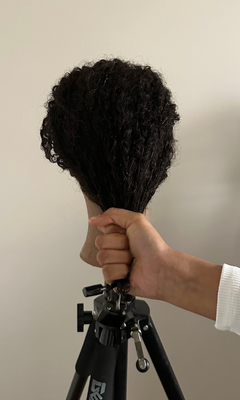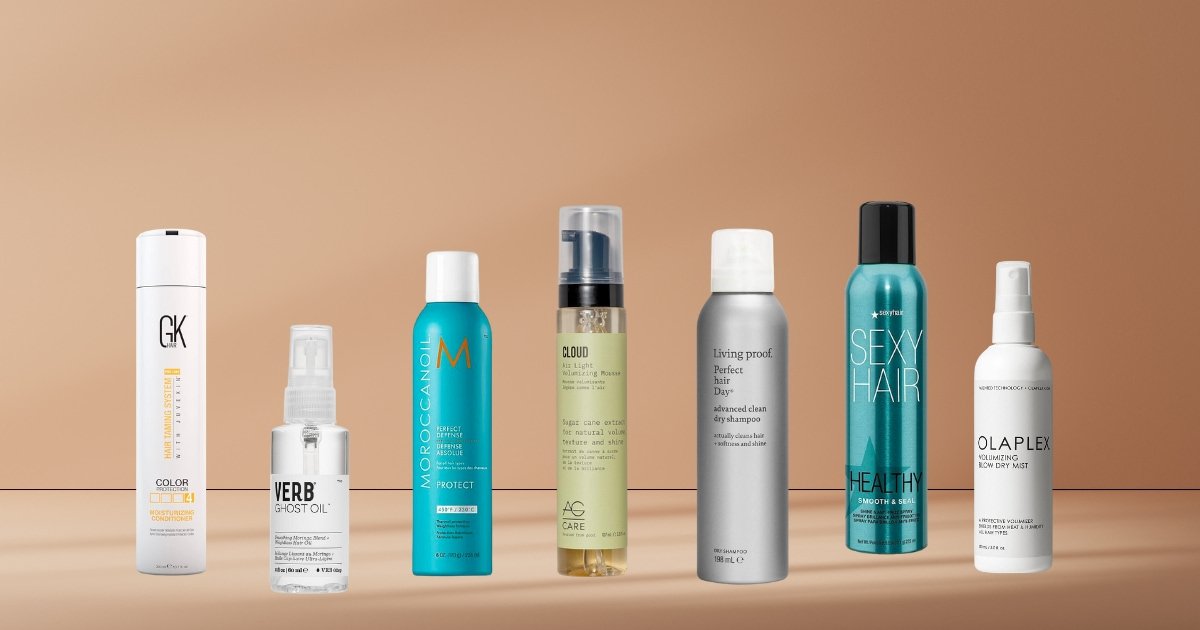How to Deep Condition Curly Hair Like a Pro
This post may contain affiliate links, which means I'll receive a commission if you purchase through the link at no extra cost to you. Please read the full disclosure here.
When you’ve found yourself struggling with nourishing your curly locks, fighting split ends, and falling victim to heat damage, it is worthwhile to consider adding a deep conditioning treatment to your regular hair care rotation.
Your hair might suffer damage from colouring, bleaching, processing, and heat styling. The best deep conditioners help rebuild damaged hair and replenish essential nutrients and oils for healthy hair. Proteins like keratin to repair and oils to smooth the shaft are key ingredients to seek in deep conditioning products.
Finding the right products for your curl type is crucial since using the incorrect deep conditioner can potentially worsen your hair problems. If you don't know exactly which deep conditioner your hair requires, you run the risk of making the damage worse. Some deep conditioners are only meant to promote moisture; others are supposed to repair and strengthen.
Deep conditioning regularly will also help curly-headed individuals achieve more defined, less frizzy hair depending on the hair’s overall health and porosity. This is also dependent on hair type and curl pattern.
Using a deep conditioner makes it easier to achieve substantial hair growth in a shorter time, as these products promote healthy hair growth by using natural ingredients.
What is Deep Conditioning?
Deep conditioners are hair treatments designed to be rinsed out of your hair. Due to their formula, deep conditioning treatments are usually a thicker consistency and slightly higher quality than your regular conditioner.
Deep conditioners are formulated with ingredients that strengthen the hair, protect it from damage, and aid in treating dry hair. In addition, deep conditioners stay in the hair longer and subsequently can hydrate and nourish the hair longer than the average conditioner.
In order to restore moisture to hair that is severely lacking, deep conditioners are used to replenish the hair and nourish it with ingredients like coconut oil, avocado oil, castor oil, and more.
Without these ingredients, the treatment will not penetrate the hair and rest on the cuticle. This isn’t to say that this will have a negative effect on the hair, but deep conditioners that are infused with natural oils seal the moisture in the hair while simultaneously coating and protecting the outer layers.
Deep conditioners can also be homemade conditioners using natural, at-home ingredients like greek yogurt, egg yolk, olive oil, mayonnaise, and more. Simply research a homemade hair mask recipe and get to mixing!
The Benefits of Deep Conditioning Curly Hair
Deep conditioning can help prevent brittleness and damage to the hair by ensuring it is properly moisturized and the hair shaft is strong. Deep conditioning should be a frequent part of most people's hair care regimens because it supports hair health, promotes moisture, and increases strength and overall appearance.
Step-by-step guide on how to deep condition curly hair
1. Shampoo your hair first. If you only wash your hair once a week or have an oily scalp, you should double-shampoo your hair. This will help to open up the hair's cuticle and ensure your scalp and hair are clean. An open cuticle will allow the deep conditioner to penetrate the hair deeper.
2. After shampooing, gently press the water out while keeping your hair damp. It is best to separate your hair into different portions so that each section receives the proper amount of deep conditioning treatment. You can even split your hair into eight sections if your hair is exceptionally thick to ensure proper coating.
3. Then, apply the deep conditioner to your hair. Work the deep conditioner through damp hair from roots to ends. Concentrate on the ends of your hair, as this is typically the driest part of your curls. Your body heat (and the shower steam) will cause the deep conditioners to penetrate your strands more deeply if you wear a shower cap in the shower or tie your hair up. Low porosity hair is less likely to absorb moisture. Therefore treatments often lay on top of the hair instead of working fully and effectively. Heat causes the hair shaft to expand, allowing moisture to enter. While the conditioner sits, you can complete your regular shower routine.
4. Use cool water to rinse the conditioner out of your hair, which is an important step in ensuring your hair cuticles close again.
The Do's and Don'ts of deep - conditioning
DO
Do your research on the product's ingredients and pick a product targeted to your hair type.
Apply deep conditioner after shampooing.
Work the product evenly through the hair, sectioning if needed.
Cover your hair with a shower cap and let the product absorb.
Rinse out thoroughly, making sure to use cool water.
DON’T
Buy any product without doing research prior.
Apply deep conditioner before shampooing.
Only coat the top layer.
Leave the product in for longer than instructed.
Deep condition too often or too little.
Do you deep condition curly hair, wet or dry?
Never use a deep conditioner before shampooing, as shampoo removes moisture from the hair while cleansing it, effectively negating the deep conditioner's hydrating effects. Deep conditioning after shampooing replenishes moisture and balances your hair, restoring healthy oils to the hair after the shampoo has cleansed the oil out.
How often should you deep condition your hair?
If necessary, use a deep conditioner roughly twice or four times a month before or after your regular conditioner. You might want to deep condition your hair more or less frequently, depending on your hair type.
For instance, you can deep condition your hair twice a week until it is no longer as damaged or excessively dry. Deep conditioning may only be necessary twice a month for other people that do not have curls, or whose curls are more healthy.
Pro tip: A protein-based deep conditioner will strengthen and enhance elasticity and porosity, so your hair can withstand more damage. Add extra moisture with a hydrating deep conditioner when your hair seems dry from daily style or cold weather.
How long should you deep-condition curly hair?
Some hair treatments need to sit on your hair for as little as five minutes, but some treatments must continue working for 15 to 30 minutes.
One common misconception about deep conditioners is that the longer the conditioner is left on your hair, the more beneficial it will be. However, some products are designed differently and require varying waiting times.
These products aren't meant to stay on the hair for an extended period of time, which is why they tend to be much heavier than regular formulas.
For the best results, deep conditioners should not be left in your hair overnight or for any longer than the manufacturer suggests, as this may cause buildup and/or over-conditioned hair that appears thin and/or sticky.




















